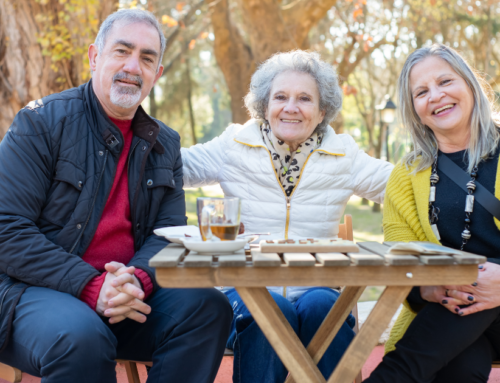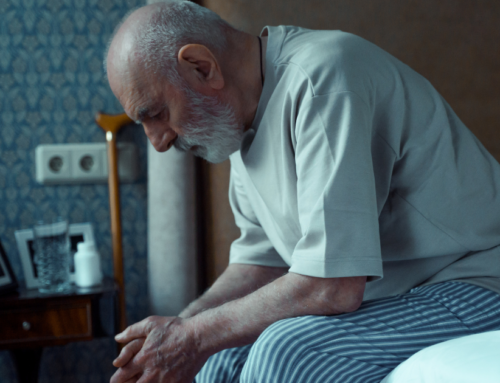Do you ever wonder how aging works? What is it that helps some age gracefully and others not so much? Is there a secret? Should I approach aging with a holistic approach? What about all those quick solutions? What are telomeres?
Some recent studies have shed light on human genetics and how telomeres play a role in our aging process. Researcher Elizabeth Blackburn paved the path for much of the research conducted on the fine balance between telomerase in the human body. She describes it like a knife edge, showing that when there is little telomerase when our cells divide the end of our chromosomes, which is called a telomere, get shorter the more they divide resulting in signs of aging (wrinkles, gray hair, fading memories, diseases, etc.), but on the flip side if there is too much telomerase in the body it can lead to some detrimental cancers. So, what does this mean for us? How do we manage the correct balance in our bodies? Blackburn describes several tips to holistically view aging and how to embrace the concept:
Meditation
In a research study, it was shown that as little as 12 minutes a day for two months showed improvement in the maintenance level of the participant’s telomeres.
Change your Attitude
How you perceive your life situation even in the face of chronic stress can really change the trajectory of how your telomeres will change. Finding resilience during stress and viewing situations as a challenge instead of an overwhelming threat can make a huge difference in the level of cortisol coursing through the body affecting the telomerase and telomeres.
Consistent high cortisol decreases telomerase
Addressing the elephant in the room: chronic stress = high cortisol. Here are some 11 tips for finding ways to manage stress.
1. Live in the moment
Make the most of each situation and clear your mind from wandering thoughts. It can be a challenge to be present mentally in each situation, but finding joy in small events can help structure a positive outlook on life.
2. Forgive yourself and others
Forgiveness is the best medicine for old wounds, let them go. This doesn’t mean that what occurred was right, but holding onto past resentments can be toxic.
3. Laugh
Learn to laugh at yourself and whatever life throws at you. Laughter has been linked to boosting immune function, pain tolerance, cardiovascular health, and memory retention.
4. Be curious
You’re never too old to learn something new! Keep learning and finding areas of interest. Research has shown that staying sharp as a lifelong learner can help reduce the risk of memory lost, and improve self-esteem, social connection, practical life skills, and enjoyment.
5. Find flexibility in yourself
Flexibility in the body and mind increases the way you can handle what life throws your way. If you find yourself being rigid and unmoving, that can be a red flag to start practicing open-mindedness.
6. Be grateful & mindful
Find ways to cultivate gratitude, like taking time every morning to write out 10 things you’re grateful for. Mindfulness has been proven to improve your focus, memory, emotional reaction, relationship satisfaction, and immune function and decrease stress.
7. Diet Choices & Water Intake
Getting enough nutrients is a huge factor in mental and physical health. What we put in our bodies becomes a part of us. Finding a balance between healthy choices and treating yourself can be a healthy approach to our current diet culture.
8. Quality time with loved ones
Spend time with those you love! This can elicit laughter, open-mindedness, gratitude, flexibility, and enjoyment. Meaningful relationships and a strong social network can improve mental and physical well-being. Don’t forget that our furry friends help with lowering stress, blood pressure, loneliness, and increasing mood.
9. Accept your age
Evidence shows that those who maintain a positive attitude about aging will live longer, due to their outlook and resilience in life.
10. Do things you enjoy
Taking the time to figure out what hobbies you like or what fills your cup is important as we age and consider what part of the puzzle we play. Spend time trying new things until you find something that speaks to your soul.
11. Get adequate sleep
Sleep is so important for rebuilding cells. Studies have proven that getting adequate sleep will lower the risk of heart disease, stroke, stress, depression, obesity, and inflammation and improve focus and concentration.
Feeling safe in your living space can impact your telomerase
Do you feel safe in your living space? If you are in a constant state of fear, this may increase your cortisol levels, because your body is constantly assessing if it needs to fight or flight. This can quickly turn into a big stressor.
Healthspan vs life span
Lastly, Blackburn talks about health span versus life span. She describes health span as the years that we are disease free and finds zest in life. Life span is how many years we are on this earth physically.
All in all, genetics could have a huge factor in how we age, but we do have a lot of control over the matter. The way we choose to live our lives and decide how situations affect us can make a difference in the length of our telomeres, and that is the most important takeaway! How long are your telomeres?
Are you curious how home care can help you age gracefully? We are your resource! Contact us today for more information.
Sources:
7 Holistic Tips to Age Gracefully
How to Live Your Best Life as You Age
Positive Aging: 10+ Principles to Shift Beliefs Around Age






